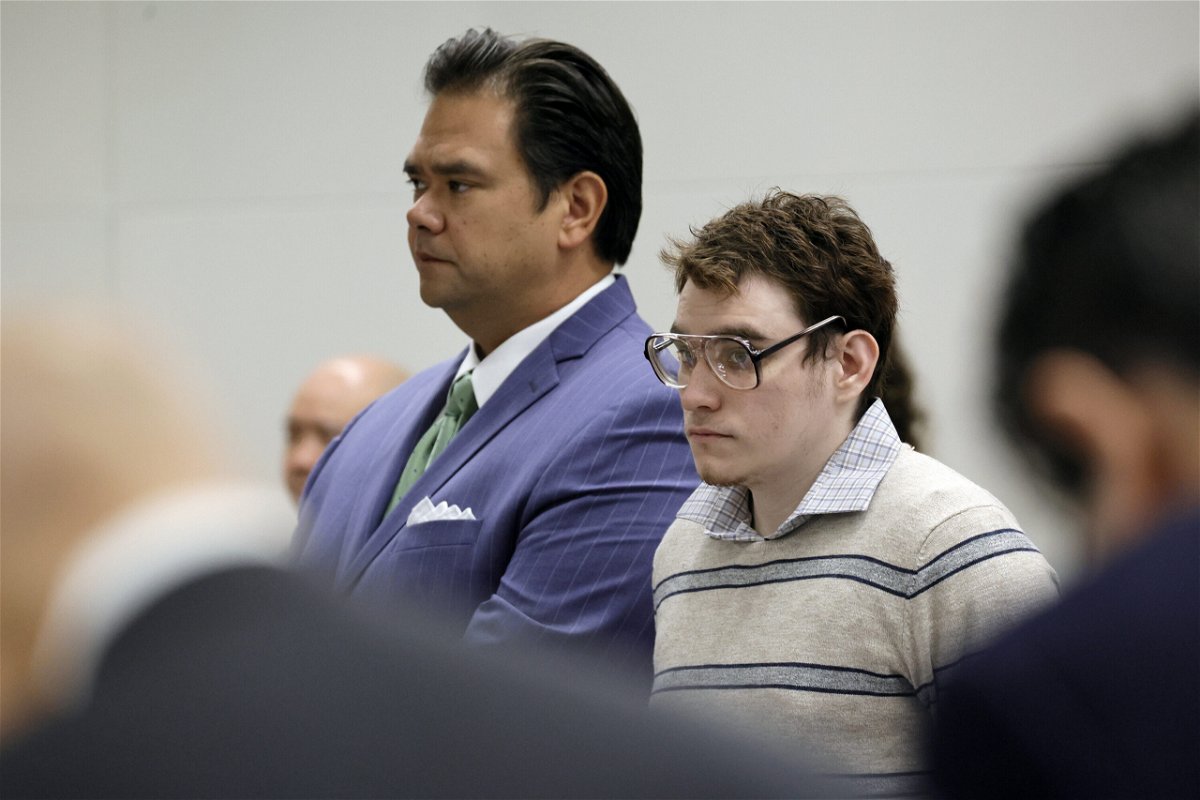Defense team unexpectedly rests its case in death penalty trial of Parkland school shooter

The defense team in the trial of Parkland school shooter Nikolas Cruz
By Dakin Andone, Denise Royal and Carlos Suarez, CNN
The defense team in the trial of Parkland, Florida, school shooter Nikolas Cruz abruptly rested its case Wednesday, leading the judge to admonish his attorneys for what she described as a “level of unprofessionalism” she had never before experienced.
The defense team planned to call 80 witnesses, lead defense attorney Melisa McNeill said in opening the case, but by Wednesday it had called just 26. So, its move appeared to come as a shock to the judge and prosecutors, who’d arrived in court expecting Cruz’s defense team to call its first witness of the day.
Prosecutors in the case, which spawns from the Valentine’s Day 2018 massacre at Marjory Stoneman Douglas High School that reignited calls nationwide for stricter gun laws, then told the judge they were not ready to proceed with their rebuttal.
“We were waiting for 40 more witnesses,” lead prosecutor Mike Satz said Wednesday, throwing up his hands.
Without jurors present, state Judge Elizabeth Scherer went on to criticize the defense for “another day wasted” in a trial that has seen numerous delays and postponements.
“Even if you didn’t make your decision until this morning, to have 22 people, plus all of the staff and every attorney, march into court and be waiting as if it’s some kind of game — now I have to send them home,” she said. “The state’s not ready, they’re not going to have a witness ready. We have another day wasted.”
“I honestly, I have never experienced (this) level of unprofessionalism in my career,” Scherer said. “It’s unbelievable.”
McNeil started to respond: “You’re insulting me on the record in front of my client, and I believe that I should be able to defend myself,” the attorney said.
But the judge stopped her, saying, “You’ve been insulting me the entire trial, blatantly. Taking your headphones off, arguing with me, storming out, coming late intentionally if you don’t like my rulings. So, quite frankly, this has been long overdue.”
Fred Guttenberg, the father of Jaime Guttenberg who was killed in the shooting, tweeted his response to the defense resting its case.
“I am in complete shock. That is all I will say about the trial at this time. Once the jury renders its verdict, I will have much to say,” his tweet read.
Cruz pleaded guilty last October to 17 counts of murder and 17 counts of attempted murder in the Parkland spree shooting. That triggered the current phase of his trial, which is meant to determine his sentence.
Prosecutors have asked a jury to recommend he be sentenced to death, while Cruz’s defense has asked for a sentence of life in prison without parole. To recommend a death sentence, jurors must be unanimous. If they do so, the judge could choose to follow their recommendation or sentence Cruz to life instead.
The rebuttal by state prosecutors could happen as soon as September 27. Closing arguments could take place as early as October 10, the judge said Wednesday.
Scherer on Wednesday questioned Cruz about the defense decision to rest its case, making sure the defendant had an opportunity to discuss it with his lawyers and understood it meant no more witnesses would take the stand in his defense.
“Are you comfortable with the decision?” Scherer asked.
“Yes,” Cruz replied.
The names of witnesses who had yet to be called were read in court, and Cruz was asked if he wanted anyone on the list to testify, including his brother. Cruz said no.
Defense attorneys in laying out their case in the penalty phase aimed to present the jury with mitigating factors — reasons Cruz should not be put to death. They detailed a lifetime of struggles at home and in school, including being born to a woman McNeill described as a drug and alcohol abuser who worked as a prostitute while pregnant with Cruz.
Cruz also exhibited developmental and educational difficulties throughout his life that his lawyers argued were not appropriately addressed.
“His brain is broken; he’s a damaged human being,” McNeill said in the defense’s opening statement.
Prosecutors have argued Cruz’s decision to carry out the massacre, in which he killed 14 students and three school staff members, was not based on a whim but premeditated and calculated. They presented the jury with Cruz’s online search history in the months leading up to the shooting, along with social media comments expressing a desire to kill people.
Their case was followed by impact statements from the families of the victims, including many parents who spent days offering emotional testimony about how the shooter robbed them not only of their children but those victims’ futures — and the graduations, first jobs, weddings and grandchildren that will never be celebrated.
Jurors also toured the site of the shooting — the high school’s 1200 building — which had been sealed to preserve it for the trial. Inside, they found a scene riddled with bullet holes, bloodstains, Valentine’s Day gifts and cards and other things students and teachers left behind as they fled gunfire.
Correction: An earlier version of this story misstated how soon closing arguments could take place. It is October 10.
The-CNN-Wire
™ & © 2022 Cable News Network, Inc., a Warner Bros. Discovery Company. All rights reserved.